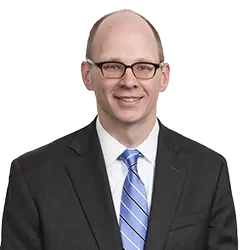ASAP
First Circuit Federal District Court Holds Automatic Meal Break Deduction Policy Does Not Satisfy Commonality Requirement for Class Certification
The U.S. District Court for the District of Massachusetts has issued an important decision in one of the many recent class actions challenging automatic meal break deductions. In Raposo v. Garelick Farms, LLC, the court denied class certification to a group of truck drivers who sued their employer, a dairy distributor, seeking back pay for time worked during meal breaks automatically deducted from their pay.
The truck drivers sought certification of a state-wide class, arguing that the employer’s automatic deduction policy satisfied the commonality requirement for class certification. The court disagreed. The court first noted that the alleged policy did not apply system-wide but added that, even if it did, such a system-wide policy would not establish commonality: “[T]he cases plaintiffs cite for the proposition that commonality is satisfied where a lawsuit challenges a system-wide policy or implementation of a common scheme were decided prior to the Supreme Court’s recent decision” in Dukes v. Wal-Mart Stores. In light of Dukes, the court stated, it was “not persuaded that those cases remain applicable.” Instead, the court now “must evaluate whether each of plaintiffs’ claims depend on common questions which generate common answers apt to drive the resolution of the litigation.”
The court found no such commonality. For the plaintiffs to prove their claim they would have to demonstrate that their employer knew or should have known that drivers were working during their meal breaks. In addition, evaluation of the plaintiffs’ claim would depend on the answers to two questions: (1) did all drivers in the class work through their meal periods and, if so, why?; and (2) if any driver worked through meal breaks, was he compensated for that time? The court held that “[n]either of the inquiries is . . . capable of generating common answers as is necessary to satisfy the commonality requirement as articulated in Wal-Mart.”
As to the first question, the deposition testimony established that not all drivers worked through their meal breaks. Moreover, the reasons given by the drivers who skipped meal breaks varied from driver to driver and day to day. As a result, the court concluded, the first question cannot be answered on a class-wide basis.
The second question was equally problematic. The court noted that some drivers who worked through breaks subsequently were compensated after notifying their supervisor of time worked. As a result, the court concluded, whether a driver was compensated for working through a meal break depended on decisions made by each individual supervisor.
The plaintiffs further argued that the restrictions placed on them by their employer essentially converted meal breaks into work time. Under Massachusetts law, to qualify as a bona fide meal period, an employee must be completely relieved from duty and not required to perform any duties while eating. The employer in this case had an expectation that drivers would not go “off route” more than five to 10 miles to take their breaks. The court found the question of whether this restriction foreclosed a driver’s use of his break to the point that it became work time was an inherently individualized inquiry that simply was not susceptible to class treatment.
The decision in Raposo serves as an important reminder that, in light of the standards for class certification set forth in Dukes, the precedential value of prior case law on class certification must be seriously questioned.
The case also contrasts sharply with recent decisions in similar automatic meal-break deduction claims in FLSA collective actions, in which district courts have granted conditional certification despite the existence of individual issues, only to later decertify the cases as collective actions. We have discussed a number of these decisions in prior posts (see here, here, here, and here).
Photo credit: ODonnell Photograf
